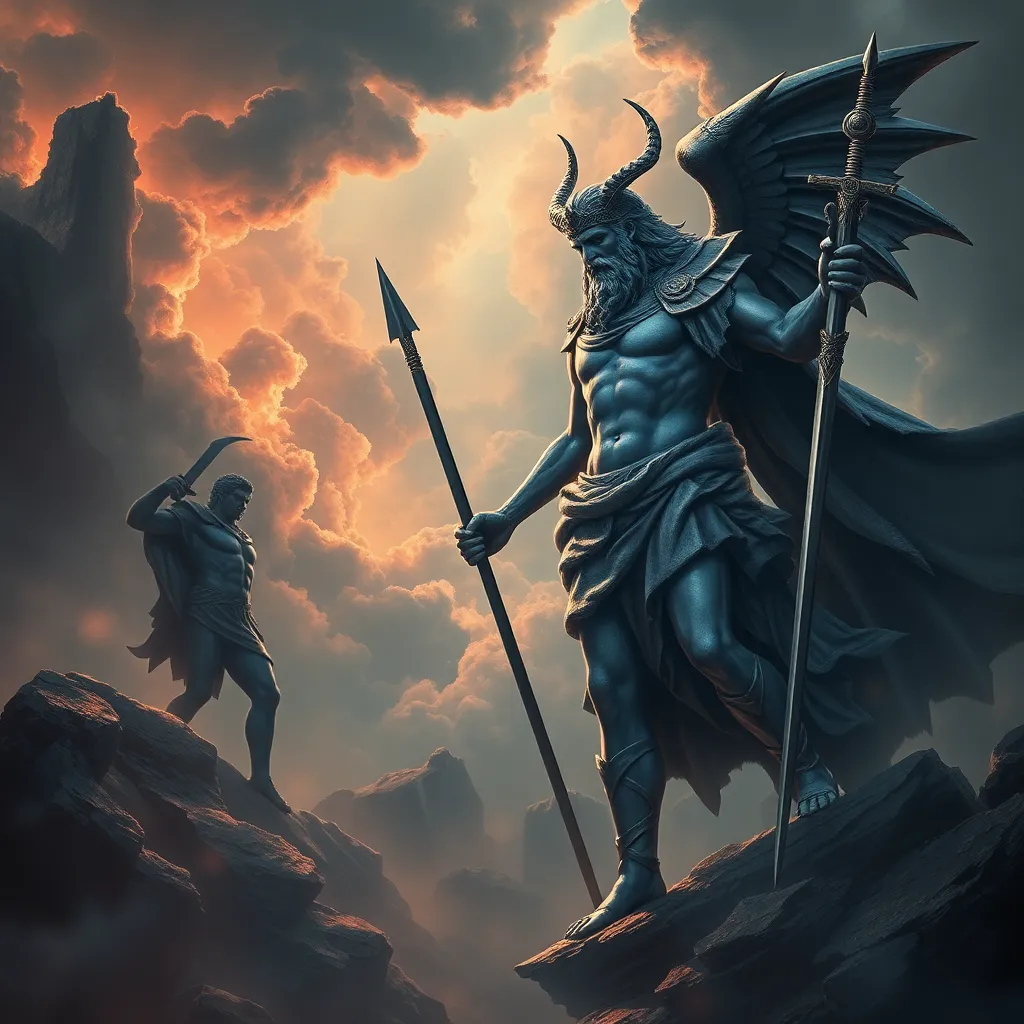The Myth of Perseus: Exploring the Nature of Good and Evil
I. Introduction
The myth of Perseus is one of the most enduring tales from Greek mythology, encapsulating themes of heroism, adventure, and the eternal struggle between good and evil. Perseus, the son of Zeus and Danaë, embarks on a perilous journey to slay the monstrous Medusa and rescue the princess Andromeda, embodying the archetypal hero. This article aims to delve into the intricate themes of good and evil that permeate the myth and their relevance in both ancient and contemporary contexts.
Examining these themes allows us to reflect on moral dilemmas, the nature of heroism, and the complexities of human nature. This exploration will provide insights into how ancient narratives continue to resonate with modern audiences.
II. The Origins of the Perseus Myth
The origins of the Perseus myth can be traced back to various ancient Greek sources, including Hesiod’s “Theogony” and Apollodorus’s “Library.” These texts offer different perspectives and details about the hero’s exploits, illustrating the fluid nature of mythological storytelling in ancient Greece.
Key characters in the myth include:
- Perseus: The hero himself, known for his bravery and ingenuity.
- Medusa: A Gorgon whose gaze turns people to stone, representing a significant challenge for Perseus.
- Andromeda: The princess in need of rescue, symbolizing innocence and virtue.
- Zeus: The king of the gods, whose divine influence shapes Perseus’s fate.
These characters not only drive the narrative forward but also embody larger themes in Greek mythology, such as the struggle between chaos and order.
III. The Hero’s Journey: Perseus as a Symbol of Good
Perseus epitomizes the heroic qualities celebrated in Greek mythology. His bravery, cleverness, and determination set him apart as a model of virtue. Throughout his journey, Perseus demonstrates several heroic traits:
- Courage: Facing formidable foes, including Medusa and the sea monster Cetus.
- Resourcefulness: Utilizing gifts from the gods, such as Hermes’s winged sandals and Athena’s shield.
- Compassion: His desire to save Andromeda showcases his commitment to justice.
Perseus’s motivations are deeply rooted in a sense of duty and a desire to protect those who cannot protect themselves. His moral choices, such as choosing to slay Medusa out of a sense of obligation rather than vengeance, highlight his alignment with good.
Divine intervention plays a critical role in Perseus’s success. The gods provide him with essential tools and guidance, reflecting the belief in a higher order that assists virtuous beings in their quests.
IV. The Role of Monsters and Villains: Representations of Evil
Central to the myth of Perseus is the figure of Medusa, a complex character often interpreted as a symbol of evil. Cursed by Athena, Medusa’s monstrous form serves as a representation of the darker aspects of humanity and the consequences of divine wrath. Her gaze, capable of petrifying anyone who looks upon her, embodies the fear of the unknown and the dangers that lurk in the shadows.
Other antagonists in the myth include:
- Cetus: The sea monster sent to punish Andromeda’s parents, symbolizing chaos and destruction.
- Polydectes: The king who desires to marry Danaë and sees Perseus as a threat, representing deceit and treachery.
These figures challenge the concept of good, forcing Perseus to confront evil and make difficult choices that define his character and heroic journey.
V. The Duality of Human Nature: Good and Evil Intertwined
The complexity of Perseus’s character reveals the duality of human nature. While he embodies good, his journey is fraught with moral ambiguity. For instance, the act of slaying Medusa, although necessary, raises questions about the ethics of violence and vengeance.
The actions of the gods also reflect this moral complexity. While they assist Perseus, their motivations are not always pure, often driven by personal vendettas or whims. This interplay between fate and choice complicates the understanding of morality in the myth.
VI. Cultural Interpretations of Good and Evil in the Perseus Myth
Across various cultures, the Perseus myth has been retold and adapted, reflecting different values and interpretations of good and evil. In some retellings, Medusa is depicted as a tragic figure, eliciting sympathy rather than fear.
Contemporary interpretations often explore themes of empowerment and the consequences of violence, resonating with modern societal issues. The myth serves as a lens through which we can examine our own moral compass and the complexities of human nature.
VII. The Legacy of Perseus in Literature and Art
The legacy of Perseus continues to influence literature and art, inspiring countless adaptations. From the Renaissance paintings depicting his triumph over Medusa to modern films and novels, the myth remains relevant.
Key adaptations include:
- Clash of the Titans (1981 and 2010): Films that bring the heroic tale to a contemporary audience.
- Literary retellings: Various authors have reinterpreted the myth, focusing on themes of heroism and morality.
Through these adaptations, Perseus serves as a lens for exploring ethical dilemmas, inviting audiences to reflect on their own values and beliefs.
VIII. Conclusion
The myth of Perseus offers a rich exploration of the themes of good and evil, revealing the complexities of heroism, morality, and human nature. From the heroic qualities of Perseus to the monstrous representations of evil, the narrative invites us to ponder the duality of existence.
As we reflect on the enduring relevance of the myth, it becomes clear that the lessons learned from Perseus’s journey continue to resonate in today’s society. The struggle between good and evil, the influence of choice and fate, and the moral ambiguities we face are as relevant now as they were in ancient times.
Ultimately, the myth of Perseus reminds us that good and evil are often intertwined, shaping our understanding of the human experience.




